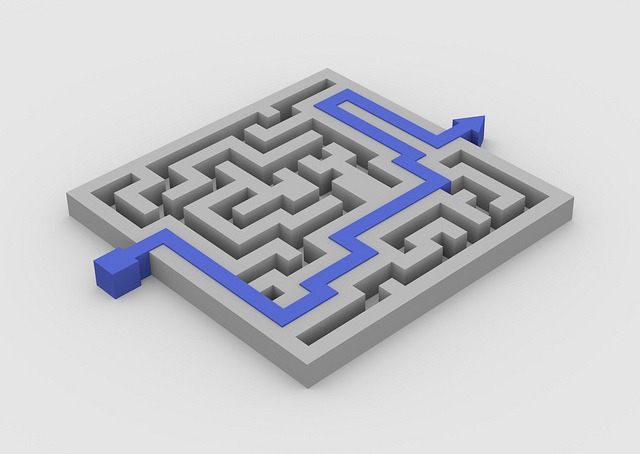
Lots of people think that the key to productivity is to find ways to get more done. However, the real secret to optimum productivity is to do less while achieving more. Below you’ll discover eleven strategies for doing this.
1. Identify the Tasks With the Greatest Impact. Make an inventory of everything that you’re trying to do, identify those tasks on your list which will have the greatest impact in helping you to achieve your goals, and put those tasks at the top of your to do list.
Look at all of the tasks at the bottom of your to do list and eliminate, delegate, or outsource them.
2. Train Your Brain to Focus. Once you’ve decided what to work on—that is, once you’ve chosen the highest impact task—get to work on that task and calibrate your brain to focus on it completely. Look at the following two scenarios:
- You work on a report for 45 minutes; during that time all of your attention is on the report.
- You work on a report for an hour; during that time your attention wanders, you check your email, you make a phone call, and you check your Twitter feed a couple of times.
Obviously, you’ll get more done during 45 minutes of focused work than you will in an hour during which your attention wanders all over the place. You can get more done, in less time, by focusing on what you’re doing.
3. Listen to Your Body’s Clock. One of the best ways to get more done in less time is to work on your most important tasks when you’re most effective. We all have a peak time of day during which our brain capacity is at its highest. Identify when that time of day is for you, and set that time aside to work on your most important task for the day.
For most adults, the best time to do cognitive work is in the late morning.
4. Work on Your Strengths. It’s a lot more effective to work on the things that you’re good at, than it is to spend time working on things that you don’t do well. Think of the following: you have a plot of land and you’re trying to decide what to grow on it. You can choose between apples and pears.
When trying to make your decision, you need to take the following into account:
- The conditions of the soil on your plot of land are such that apples grow well.
- The conditions of the soil on your plot of land are such that pears grow poorly.
What are you going plant on your plot of soil? I really hope you said “apples”.
Working on your strengths is the equivalent of planting the crop that grows best on your plot of land. On the other hand, working on your weaknesses is the equivalent of planting crops that grow poorly. It doesn’t matter how hard you work at growing pears, they’re never going to grow well because the soil is simply not suited for pears.
5. Be Exceptional. You get much better results in life by doing a few things exceptionally well, than you do by doing many things at an average level. Therefore, instead of wasting time trying to be a jack-of-all-trades, focus your time and efforts on a few things that you enjoy doing, which you’re good at, and that get you the results that you’re after.
It takes less time–and you reap greater rewards–to learn to do a few things very well, than it does to learn to do lots of things reasonably well.
6. Sharpen the Saw. Leadership guru Stephen Covey identified “sharpening the saw” as one of the seven habits of highly effective people. Imagine trying to cut down a tree with a saw that has a dull blade. You’ll be sawing for hours with little to show for your efforts.
Then, imagine trying to cut down a tree with a saw that has a really sharp blade. You’ll cut down that tree in no time. A sharp blade gives you better and faster results than a dull blade. When it comes to you, the equivalent of sharpening the saw is doing the following:
- Get enough sleep at night.
- Take frequent breaks throughout the day.
- Devote at least one day a week to rest and relaxation.
- Take a vacation at least once a year.
7. Use the Best Tools for the Job. Whenever you’re going to work on a task, look for the best tool that you can find to get that task done. Here are three examples:
- If you’re going to clean your house, get the best cleaning supplies you can find.
- If the task you’re working on involves doing research on the internet, use the fastest internet access you can find.
- If you’re going to manage a project, use the best project management software you can find.
8. Set Deadlines. Deadlines serve several important purposes, two of which are the following:
- Setting a deadline for a project forces you to get started, since there’s a date by which you need to be done.
- Setting a deadline tells you when to stop working on a project.
Knowing when to stop is very important in order to get more done in less time.
In theory, a project can go on indefinitely. No matter how good a job you do, there’s always room for improvement. You can get more done in less time by setting a clear “stop date” for each of your projects, instead of continuing to edit and polish your projects indefinitely.
9. Do What Works. It’s much more productive to spend an hour doing what works, than it is to spend that hour experimenting with things that may or may not work. While it’s important to be unique, there’s no need to reinvent the wheel when the wheel is working just fine.
And how do you know what works? By modeling those who have succeeded where you want to succeed. Find out what has worked for others, and then emulate them. Of course, the idea here isn’t to rip people off by stealing their ideas. A good rule of thumb is the following: don’t copy what they did, copy how they did it.
10. Leverage Your Time. Look at the following three scenarios:
- You work with people one-on-one teaching them a skill.
- You set up a workshop and teach that skill to several people at once.
- You create a course teaching others how to perform that skill and you sell it on the internet.
In all three scenarios you’re doing the same thing: you’re using your time to teach others a skill. However, depending on which scenario you choose, you’ll get very different results.
Doing it one-one-one is much less effective that it is to teach a workshop in which you can teach several people at once. In addition, you leverage your time even more by creating a course and selling it online to potentially thousands of people. Get more done in less time by leveraging your time.
11. Leverage Your Knowledge. Finding ways to leverage your knowledge is one of the best ways to do less and achieve more. For example, if you have a core idea you can do all of the following with it:
- Write a blog post and put Google AdSense on your blog so that you make money from the traffic that lands on your blog to read your post.
- Take three tips from your blog post and create a video that you can put up on YouTube.
- Create a slide presentation of your blog post and put it up on SlideShare.
- Expand the blog post, turn it into an ebook, and sell it.
What you’re doing is repackaging your idea several times in order to get as much usage out of it as you can. That is, you’re leveraging your knowledge. The more you can leverage your knowledge, the more you can get done in less time.
Conclusion
Many of us were taught that in order to succeed we have to exert enormous amounts of effort and be constantly busy. However, the most successful people do not necessarily work harder than everyone else; instead, they work smarter.
Live your best life by doing less and achieving more by applying the eleven strategies explained above.


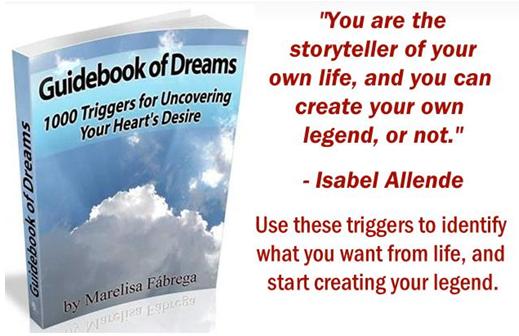
Related Posts:
- 12 Tips for Defeating Procrastination and Gearing Up for Action
- The One-Hour-A-Day Formula
- 15 Extremely Useful Things You Can Do In 15 Minutes
- What’s Your Normandy?
Did you enjoy this article? Subscribe to “Daring to Live Fully” by RSS or by email, and get free updates.

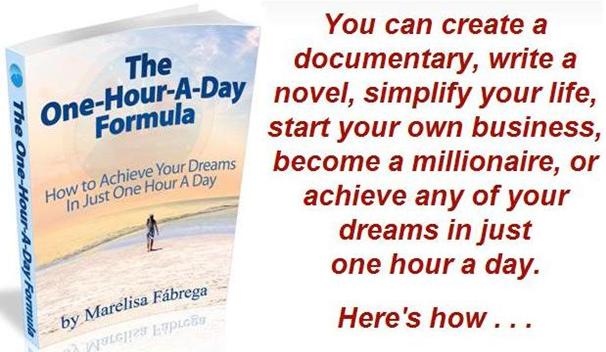
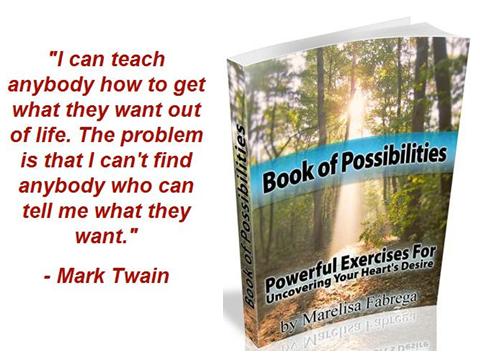

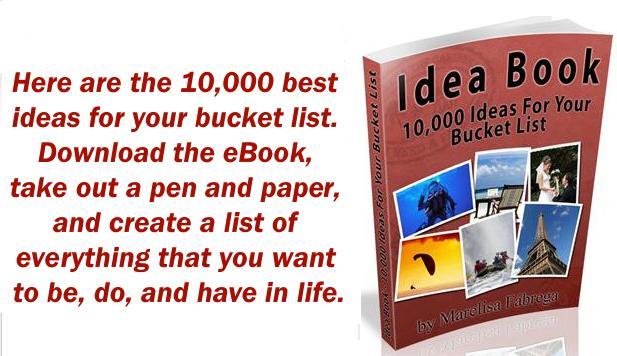
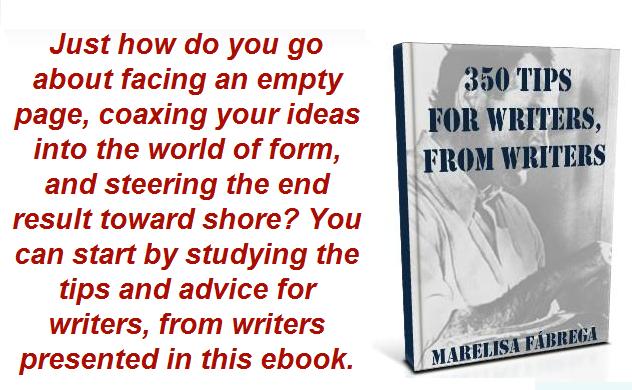
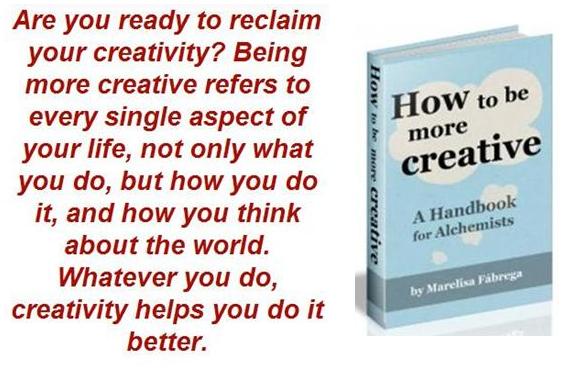
 Marelisa Fabrega is a lawyer and entrepreneur. She holds a Bachelor of Science in Business Administration from Georgetown University in Washington, D.C., as well as a Juris Doctor from the Georgetown University Law Center. You can learn more about her
Marelisa Fabrega is a lawyer and entrepreneur. She holds a Bachelor of Science in Business Administration from Georgetown University in Washington, D.C., as well as a Juris Doctor from the Georgetown University Law Center. You can learn more about her 






Comments on this entry are closed.
Great ideas. I had a problem with doing too many projects. There are so many distractions. I’m learning that I need to work on one project at a time. Now that I have too many projects, I wonder if I should pick one and put the others on hold, or finish what I’ve started.
Hi Sandy: I would choose one project and throw everything that I have at it until it’s done. One done project is better than lots of half-done projects.